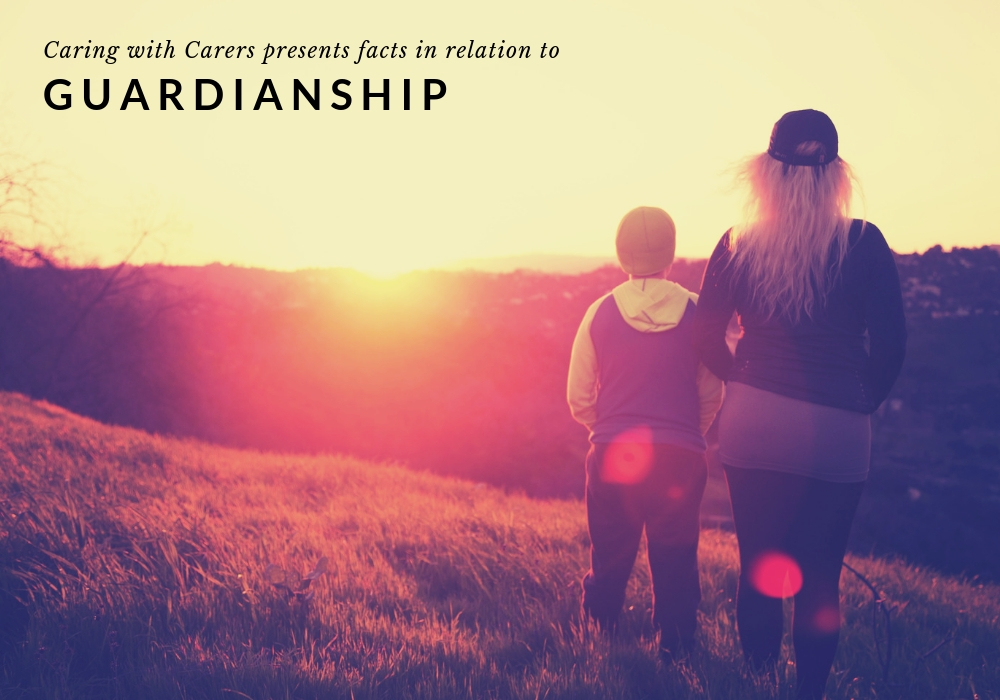
Guardianship Part 1

Author
BONNIE WESTON
Published on
- December 11, 2018
Published on
- Blog
- Are you considering becoming a guardian carer but unsure what this means for you?
- Or, maybe you have not cared within the Out-of-Home Care sector before?
- Are you wishing to transition the child or young person in your care to guardianship?
Here are a few facts you should know…
WHAT IS A GUARDIAN?
A guardian has full care and legal responsibility for a child or young person in their care, including making decisions about their health and education. Guardians also manage, and where required, supervise a child’s contact with their parents, family and other important people in their life.
A guardian can be a relative or kinship carer or another suitable person. There is no legal definition of who may be a suitable person. As a guide, this could include a family member, friend or an authorised carer who has an established, positive relationship with the child and young person.
For Aboriginal children and young people, guardians who are not relatives or kin should be Aboriginal people in order to be considered ‘suitable persons’.
- A guardianship order aims to provide greater stability for children and young people when the Children’s Court makes a decision they cannot live with their parents.
- Guardianship orders are a way of helping ensure a child or young person has a more stable, nurturing and safe home until they are at least 18 years of age, without cutting legal ties to their family (contact still occurs).
- Under a guardianship order, a child or young person is not in foster care or Out-of-Home Care but in the independent care of their guardian (no agency is involved).
- Guardianship orders can only be made on a final and long-term basis; that is until the child or young person reaches 18 years of age.
- The Children’s Court can make a guardianship order for a child or young person who is in need of care and protection or who is in Out-of-Home Care.
When can a guardianship order be made?
- The children’s courts has determined there is no real possibility of a child or young person returning to the care of their parents (restoration has been explored).
- The prospective guardian will provide a safe, nurturing, stable and secure environment for the child or young person now and into the future.
- If the child or young person is Aboriginal or Torres Strait Islander, their permanent placement under a guardianship order follows the Aboriginal and Torres Strait Islander Child and Young Person Placement Principles.
- When written consent is given by the child or young person if they are 12 years of age or older and capable of giving consent.
WHAT DOES A GUARDIANSHIP ORDER MEAN FOR A CHILD OR YOUNG PERSON?
It is important to know that the child or young person will still have contact with their parents, family and important people in their life. This will follow the case plan and allow them to stay connected to their heritage and feel a belonging to who they are.
If the child or young person is Aboriginal or Torres Strait Islander, or from a different cultural background to their guardian, they have the right to maintain connections with their culture and community and have a cultural support plan in place. The guardian must ensure the child or young person’s cultural needs are met. This is done by encouraging and facilitating their participation in cultural activities and events.
WHAT SUPPORT IS PROVIDED TO GUARDIANS?
Guardians receive an allowance, known as a guardianship allowance, to enable them to meet the needs of the child or young person. The guardianship allowance is paid at the same rate as the FACS statutory care allowance. While receiving the allowance, you are required to conduct a survey report each year. This must be returned to FACS within 21 days. If this does not occur the allowance is stopped. Also, if the child or young person leaves your care (for example: they have self-placed to birth family) you must inform FACS.
For more information about guardianship, please contact us.


